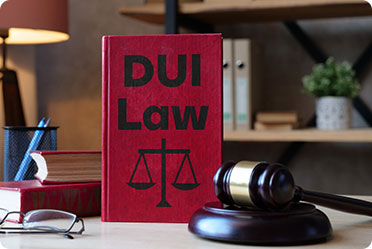
If you’re a resident of or if you ever travel to New Jersey, you’ll want to be aware of its unusual DWI laws. ..
For example, if you’ve had a DWI in another State, you may be believe that an administrative hearing will first occur, which is usually held at the Motor Vehicle Department for a particular State. However, New Jersey has no administrative hearings. All of the consequences to your driver’s license are imposed by the courts.
If you’ve been arrested for DWI in New Jersey, there are two ways you can be prosecuted: You can be prosecuted traditionally, where the prosecutor uses your driving performance and/or your field sobriety tests as proof you were driving while intoxicated, or via a per se violation, which means a chemical test of your blood or breath showed your blood alcohol concentration (BAC) to be above the legal limit of .08% . Whichever method is used, you will not get to stand before a jury to have your DWI case decided. It will be just you and your attorney, along with the State’s prosecutorial team, standing before the judge. If you lose your case, you can then request a de novo appeal, where your case is transferred to the Superior Court’s Law Division, and a different judge will review the previous trial, and perhaps render a different decision concerning guilt.
If you’ve been pulled over for a DWI in New Jersey, it is your right to have a second BAC test taken at a location of your choice and at your expense after you are released. The upside of this is that the second test may yield a more favorable result. Likewise, although law enforcement is not required to tell you, you have the right to refuse to perform a field sobriety test, which includes, among other tests, the heel-to-toe and the one-leg stand tests. However, a refusal to perform a field sobriety test may be used by the prosecution as evidence of a “consciousness of guilt.” Further, do not confuse these tests with a chemical test of your breath. Refusal of a chemical test is considered consciousness of guilt, will be admissible in court as evidence, and may result in a separate license suspension.
A driver doesn’t have to wait long for his DWI trial. By court mandate, the charge should be tried within 60 days of the filing of the ticket in the municipal court. Finally, if you are convicted of a DWI in New Jersey, you’ll only have 20 days in which to file an appeal to the superior court.
Other New Jersey DWI laws you should be aware of include: Riding or driving in a car with an open alcohol container, which includes fines and possible community service; failing to pay DWI surcharges, which can indefinitely suspend your driving privileges and, if an action is filed by the Motor Vehicle Commission (MVC) in the state superior court, a lien against your property or garnishment of your wages may occur.
You also need to know that once the length of your driver’s license suspension has expired, your license is not automatically restored! In order for that to happen, you must first go to your MVC, apply for reinstatement, and pay the $100 reinstatement fee. If you fail to do this, New Jersey still considers your license to be suspended, and being caught driving with a suspended license has serious repercussions.
Leckerman Law focuses on safeguarding the
rights of individuals charged with DUI, DWI, DAI, and
other alcohol-related criminal offenses - Call Us Now For
NJ DWI (856) 429-2323 | For PA DUI (215) 496-9292